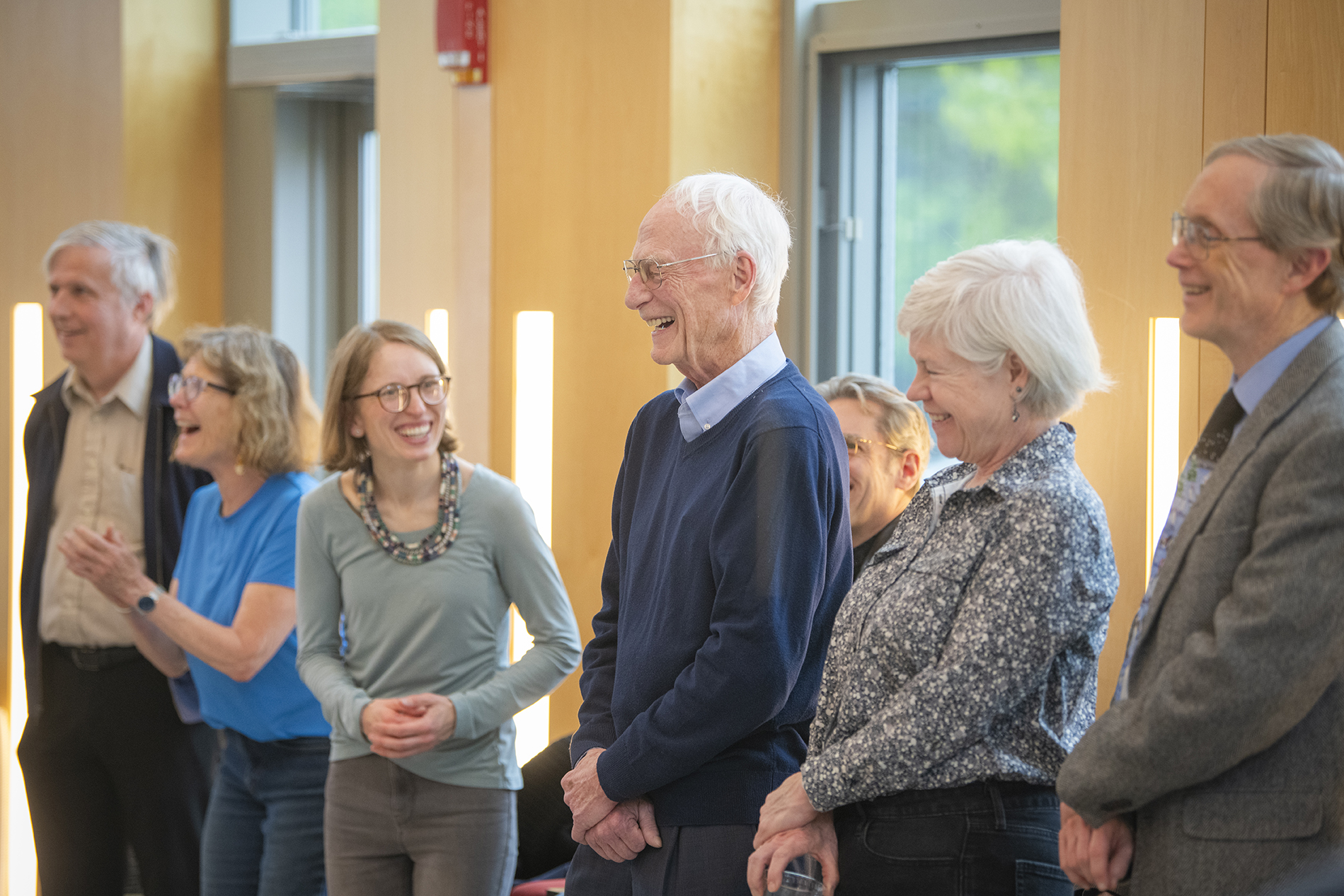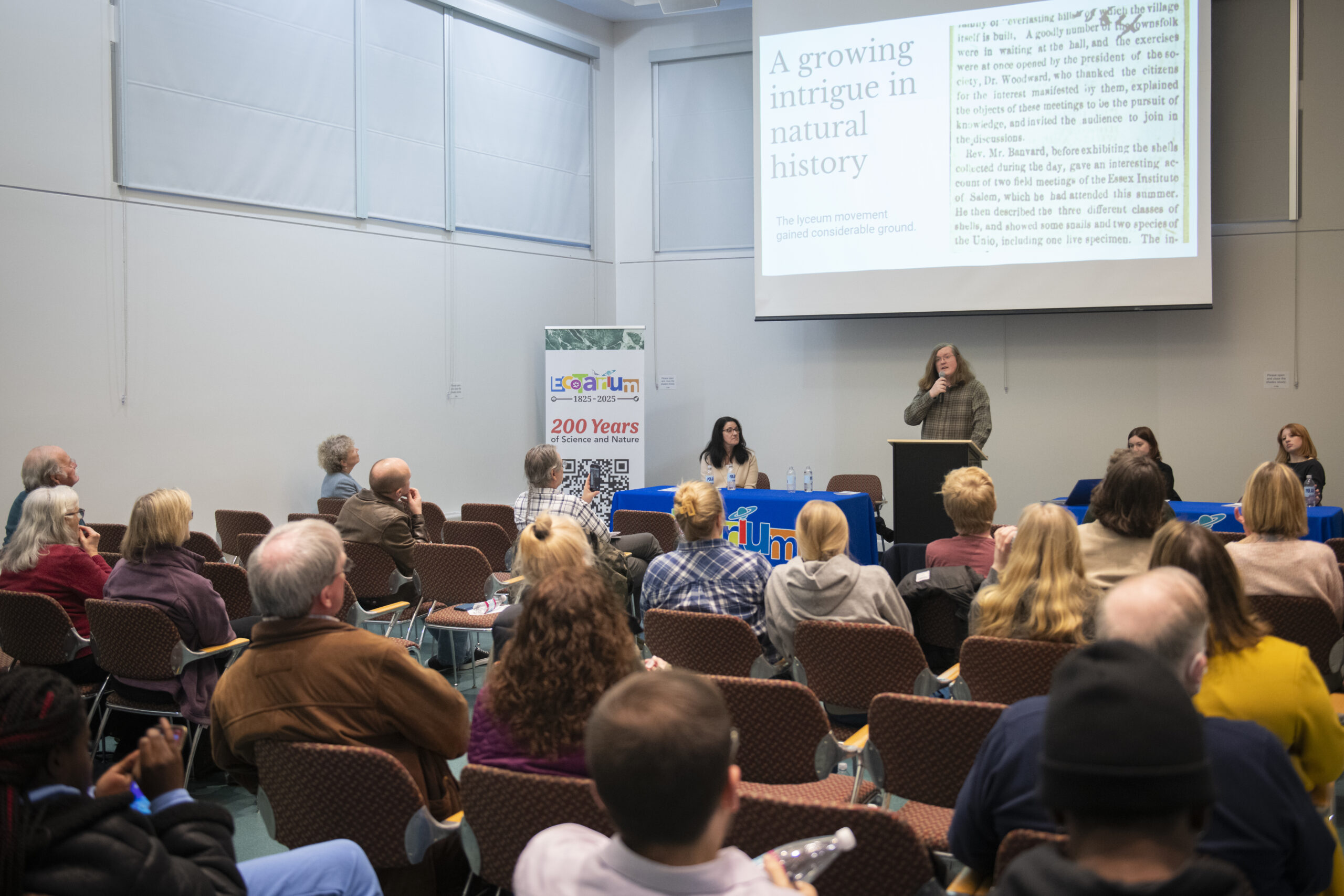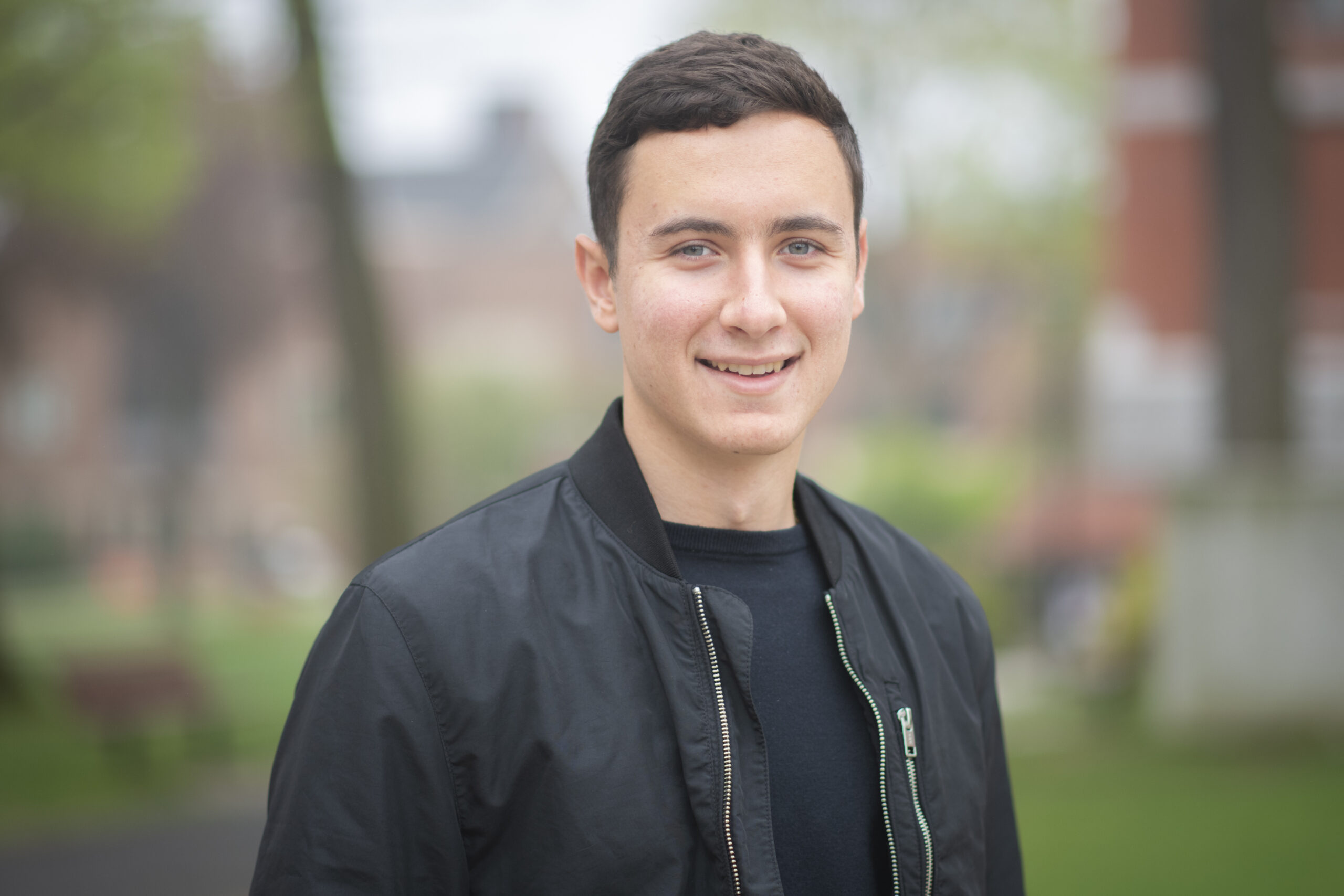Event offered an opportunity for faculty to recall their inspirations
From mushrooms to matters of class difference, lost symphonies to three-eyed worms, Clark University faculty shared a taste of their research at a recent event meant to inspire creativity — and driven by brevity.
Professors discussed why they chose their fields and why their work is important during Light in Springtime on March 30, sponsored by Dean of Faculty Esther Jones and hosted by the staff of the Goddard Library. Participants were challenged to explain their passions in “lightning” talks of just three minutes.
Professor Néva MeyerNéva Meyer, professor of biology, said she has always been fascinated by animals and their development, and researches how the brains of humans and other species are related. She intrigued the group with a story about making a three-lobe brain.
An undergraduate student took a molecule that would prevent a human brain from forming and put it on the larvae of the annelid worm Capitella teleta, she said. Usually, the species has two brain lobes. But with the molecule, a three-lobe annelid brain with a third eye formed.
“His very first question to me when he did this experiment was, ‘Professor, should they have three eyes?’” she said. “That’s the kind of stuff we do in my lab.”
Professor Benjamin Korstvedt, chair of Visual and Performing Arts and director of the Music Program, explained his 30-year project to explore one corner of the musicological world: Austrian composer Anton Bruckner’s Symphony No. 4.
The symphony has a complex compositional history, Korstvedt said. Bruckner composed three distinct versions over 15 years in the late 1800s. Unfortunately, he said, the ways that 20th-century scholars approached Bruckner’s works were “extraordinarily problematic in the fact that they sowed the seeds of a great deal of misunderstanding and fake news, which persists even to this day. … Therefore, a key part of my project has been to counter and overturn these myths.”
Most recently, Korstvedt has been working with Arizona-based MusicaNova Orchestra, which will premiere a version of the symphony in May.
Deborah Merrill, professor of sociology, said her undergraduate years at Bowdoin College helped her make sense of the experience of being a working-class student navigating her way through an elite school.
“The sociology courses I took, especially the introductory course, really helped me to form the language and vocabulary, to get the theoretical underpinnings and perspective to understand my experience — and why I was so different from my friends who went sailing all summer, who had gone to boarding schools, who had eight AP courses. It actually saved my sanity a great deal.”
During her first semester, Merrill took a philosophy course taught by Bowdoin’s president and was stunned to be in a classroom with the college’s leader. It would have never dawned on her to challenge or debate the president, something one of her friends did, Merrill recalled.
“I gradually learned, though, that this had to do with our class differences. She had grown up in a family where learning those kinds of verbal skills was just a part of parenting. That was not my parents’ idea of parenting,” she recalled.
Merrill is currently researching the sociology of mental illness, particularly why African Americans have lower rates of depression than people in other demographic groups.

David Hibbett, professor of biology and a mycologist, injected humor in his presentation, pulling up an online review from a student that, while largely positive, ended on an unimpressed note: “Too bad he studies mushrooms for a living.”
Unfazed, and taking a cue from late-night television host David Letterman, Hibbett offered the top 10 reasons to study mushrooms: Their benefit to the pharmaceutical industry, ethanol fermentation, biodiversity, and their role in the carbon cycle all made the list.
“The attraction for me was primarily aesthetic,” Hibbett said of his fascination with mushrooms. “I just thought these things were gorgeous and interesting and that’s why I got into it.
“Mushrooms are cool,” he added with a laugh.
Other speakers at the Light in Springtime event included Atefeh Yazdanparast Ardestani, School of Management; Laurie Ross, Department of International Development, Community, and Environment; Carmen Ocón, education; Donald Spratt, chemistry and biochemistry; Christopher Davey, Strassler Center for Holocaust and Genocide Studies; Wayne Gray, economics, Allison Fong, languages, literature, and culture; and John Rogan, geography.





